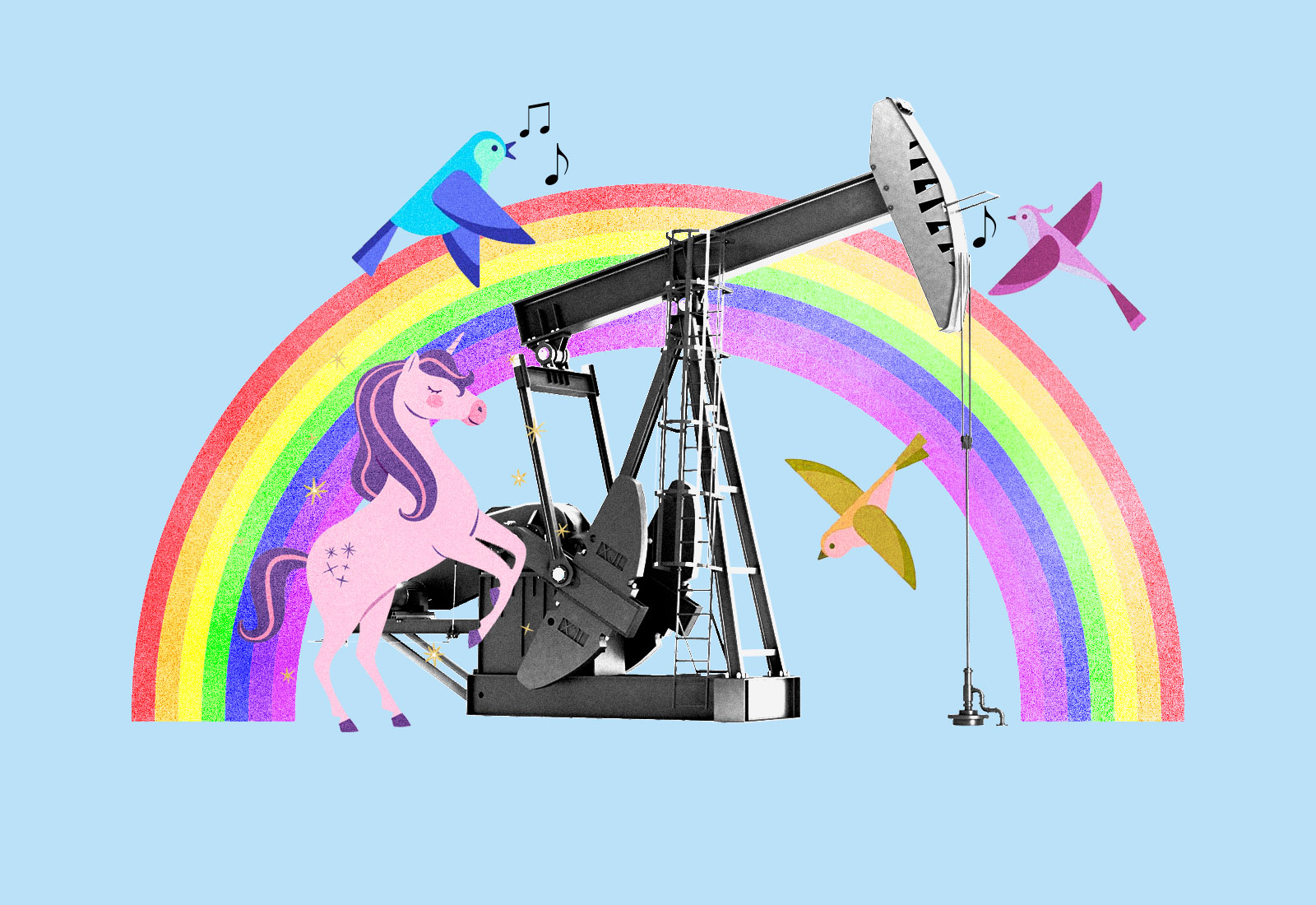Fossil fuels are choking cities with smog, turning the water toxic, and heating the atmosphere to a point of no return. So how do you make them sound like a good thing? Ask the public relations firms that have spent decades finding the right words.
A report published this week in the journal Climatic Change summarizes how these marketing whizzes have helped polluting industries improve their image and block climate policy over the last 30 years. Researchers from Brown University analyzed more than 600 PR firms, including major players like Edelman and Ogilvy, to see how they’d shaped the public discourse around climate change while working for coal, oil and gas, steel, and utility companies. Some of the PR firms also worked for environmental groups, at times contradicting their own messages, the analysis found.
The study documents how PR agencies popularized terms like “carbon footprint” and “clean coal,” emphasizing personal responsibility for climate change and diverting blame from fossil fuels. These ideas have become taken for granted, the study says, and have shaped the public debate about what to do about climate change.
Take the now-ubiquitous “carbon footprint.” British Petroleum, the company that popularized it, is responsible for more than 34 billion metric tons of carbon emissions since 1965, putting BP near the top of the list of the highest-emitting companies in the world. The PR agency Ogilvy took the footprint idea developed by an ecology professor in the 1990s and capitalized on it. In a $200 million campaign to rebrand BP as the climate-friendly “Beyond Petroleum” in the early 2000s, the oil company unveiled a carbon footprint calculator eventually used by nearly 300,000 people to calculate how their burgers, plane travel, and old lightbulbs were burning up the planet. Meanwhile, BP continued to expand oil production.
The notion of an individual carbon footprint suggests that emissions are a personal failing, the new report explains, diverting attention away from how BP was busy drilling for more oil. It’s an old PR trick to deflect blame: Before oil companies like BP and ExxonMobil adopted this framing, car companies blamed crashes on pedestrians “jaywalking,” tobacco companies criticized people for “choosing” to smoke their addictive product, and companies that wrapped their products in disposable packaging derided people for all the litter that appeared on the ground.
PR companies also popularized phrases like “clean coal” and promoted “clean burning” natural gas, according to the study. In 2014, a subsidiary of the PR giant Burson Cohn & Wolfe launched a campaign for the coal company Peabody Energy, promoting the misnomer “clean coal.” It coincided with the proposal of the Obama-era Clean Power Plan, a policy to limit pollution from coal plants. The problem is, technology to make coal truly “clean” simply doesn’t exist.
In the months after the campaign, Peabody found that that discussions of “clean coal” had increased 40 percent online.
Beginning in 2011, a $29 million campaign from FleishmanHillard for the American Petroleum Institute, the oil and gas industry’s biggest lobbying group, sold fracking as “safe” and frequently referred to methane as “clean burning natural gas.” One advertisement from the campaign’s “Energy for Shale” Twitter account declared: “Turns out wind & solar have a secret friend: Natural gas.”
The symbiotic relationship between PR whizzes and oil stretches all the way back to John D. Rockefeller, an oil tycoon from the Gilded Age. Over the last century, marketers have developed strange but effective strategies for improving their clients’ images: hiring actors to fake grassroots support for their cause, bullying journalists into reporting their side of the story, and pouring oil money into philanthropy and the arts.
PR companies haven’t attracted the same attention as climate-denying think tanks or oil companies themselves — advertisers are more often viewed as passive participants in obstructing climate action. However, there’s growing pressure on these companies to drop fossil fuel clients. An advocacy group called Clean Creatives is currently targeting the globe’s biggest PR firm, Edelman, which works with ExxonMobil. Edelman recently committed to hold itself “accountable” on climate change but hasn’t dropped its oil clients.
“We work with oil majors. I’m proud of our work,” CEO Richard Edelman told Axios last month. “I think that bigger question over time is, how we can help them express their transitions.”



